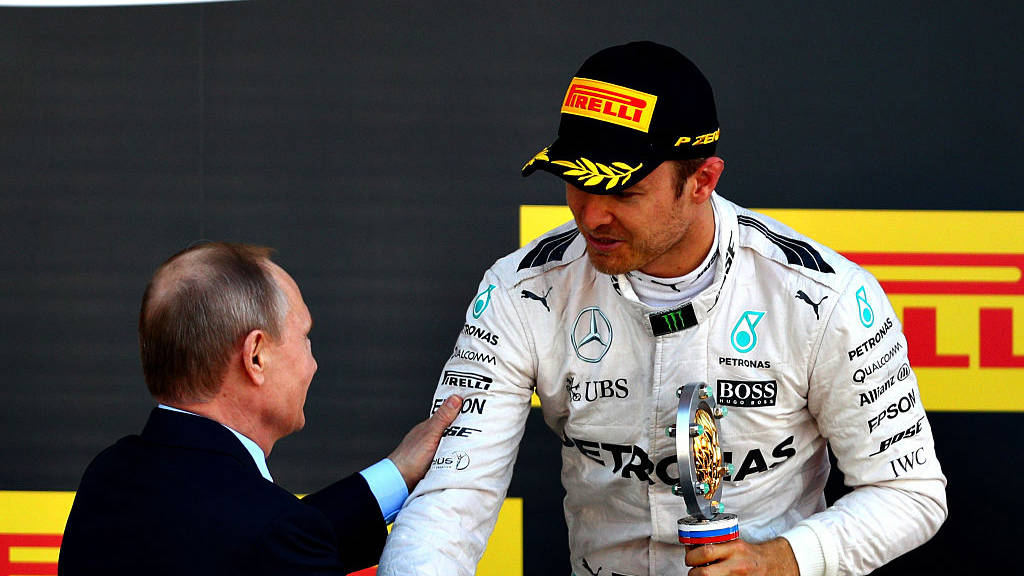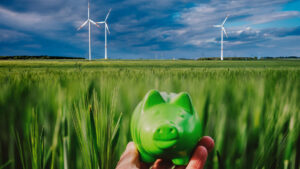Green Energy: Vulcan revs up European brand with Rosberg tie-up and carbon market hits $226 million in FY21

Retired F1 champ Rosberg has gone from petrol to lithium ion. Pic: Clive Mason/Getty Images Sport via Getty Images.
Nico Rosberg’s EV racing team drafts Vulcan Energy
Vulcan Energy (ASX:VUL) has emerged as one of the ASX’s hottest lithium properties in 2021, and with a listing on the German Frankfurt exchange on the way it is building its corporate profile in Germany as well.
While in Australia Vulcan has drawn interest from big wigs like Gina Rinehart, its brand has received endorsement in Germany from 2016 Formula-One champion Nico Rosberg.
Since retiring from F1 Rosberg has entered a new life as an EV zealot and social entrepreneur, and launched the Extreme E off-road racing series where his team RXR is the competition leader.
Perfect brand recognition for Vulcan, who have come on board as a sponsor as they prep a DFS on a project the company claims will make it Europe’s first carbon negative lithium chemical producer.
“The Extreme E championship has already achieved worldwide recognition as the future of motorsport – exciting, environmentally-focused and equitable – and the RXR team are leading the way, powered by lithium-ion batteries,” Vulcan MD Francis Wedin said.
“As the leader in sustainable battery metals, this is an excellent fit to raise global awareness for Vulcan’s Zero Carbon Lithium business.”
Vulcan Energy share price today:
Carbon market worth $226 million in 2021
The Federal Government’s hands off approach to emissions reduction has meant its carbon market has grown far slower than major indexes like Europe and California.
But new figures show how voluntary emissions reduction measures from businesses facing pressure from investors to reduce their impact on the environment are driving growth in the market, albeit at a slower pace to the booming tax driven European carbon price.
According to Reputex Energy the total value of the market came to $226 million in the 2021 financial year.
Of that just $1.5m, or 0.7%, was attributable to big emitters who were forced to purchase carbon offsets under the government safeguard mechanism.
There was a 227% boom in new projects listed under the Emissions Reduction Fund in FY21, from 62 to 203, with 89% of all projects in the agriculture and vegetation sectors.
All up there are now 993 registered with 51% already issued Australian Carbon Credit Units. 16.5 million ACCUs were issued last financial year, with a total of 98,927,574 in the market.
The ERF made up 58% of the offsets in the carbon market, Reputex assessed, with 38% coming from voluntary actors.
Demand from businesses drew record prices for carbon offsets of an average $15.99/t in the 2021 financial year, with spot prices hitting a record high of $22.40/t on August 17 after rising 22% over 2020-21.
The introduction of a net zero target could be a catalyst to grow the market and significantly increase prices, Reputex said, with the result of the 2022 Federal Election also expected to be watched closely given a Labor Government would likely bring in stricter baselines for heavy emitters covered by the safeguard mechanism.
“Even in the absence of more ambitious federal policy, the Australian market has begun to price in increased emissions reduction activity, with spot and forward prices beginning to trend toward our higher net-zero price pathways,” Reputex’s analysts noted.
“We forecast demand for ACCUs will continue to grow on the back of new corporate voluntary commitments, with high emitting companies increasingly responding to pressure from local and international investors, and downstream customers (locally and in net-zero export markets), rather than government policy.”
Related Topics

UNLOCK INSIGHTS
Discover the untold stories of emerging ASX stocks.
Daily news and expert analysis, it's free to subscribe.
By proceeding, you confirm you understand that we handle personal information in accordance with our Privacy Policy.








